How to Find an Editor for My Novel
- Michelle Hazen
- Aug 20, 2025
- 6 min read
Finding an editor for your novel is easier than it's ever been. Now, finding a GOOD editor? *long sigh * That's a little tougher.

Publishing has always been competitive, but in the years since the pandemic lockdown, the query trenches have exploded with new talent! That means, to stand out in an increasingly elite group of competitors, people can't wait to polish their book until they get an agent, land a book deal, and then are assigned an editor by their publishing house. Now days, more authors are turning to freelance editors to help them level up so they can snatch up one of those coveted agent spots in the first place!
The good news is, these days there are a whole lot more freelance editors and book coaches around (I'll link my best resources at the bottom!) Even five years ago, the only way to find an editor was just googling around until you landed on somebody's website. Of course, anyone who has just written their first Post-It note can hang out their shingle as a freelance editor. There's no oversight. As the Dunning-Kruger Effect teaches us, sometimes the least-qualified people have the most confidence in their skills.
So how do you know who to hire?
Credentials
Personal Fit
Ask for a Call!
Test Edit
Who are their past clients?
Credentials
Not all editors have these! If they've worked for a Big 5 or small press, that's fantastic (more on how to find those editors below) but the most talented freelancers I've met never worked for publishing houses. I was trained at Author Accelerator, who has a book coach certification program. I loved the program, they taught us the art of analyzing a piece of writing, and more importantly, how to articulate feedback in a way that's kind and easy to apply.
You can also look for editors who have training as an agent, or have an MFA. Unfortunately, very few MFA programs are suitable for training in the trends of current commercial fiction, but it's certainly better than no training at all! It's helpful if the editor is an agented and/or published writer themselves, but as I learned as a PitchWars editor, not everyone who can write can edit! It's a different skill set, though knowing how to write yourself is a start. You can also check an editor's bio for memberships to professional organizations like the EFA, which might indicate professional dedication. However, basically anybody with money for dues can join those, so it doesn't speak to skills as much as I wish it did.
Personal Fit
This is my favorite way to choose an editor. Look for someone with similar taste to you, who likes the same things you like and cares about the stuff that lights you up. Once you find their editor website, read their bio. If they're published, look up their books. Dig into social media or find interviews or podcasts they've given to get to know them. In my years as an editor, I've left breadcrumbs all across the internet with hints as to who I am and who would love working with me. Recently I was on a Dabble podcast where I talked about being a fanfiction author and that landed me a new client whose work I adore because we have so much in common! I've also had a ton of people show up because they loved my sense of humor and unique approach to scene design in my How to Write Romance that Stands Out class. I've found that being yourself is the best way to find collaborators you click with!
Ask for a Call!
This is the fastest, most comprehensive way to determine fit. Plus, you can ask an editor questions about their credentials, and what they most commonly change about the books they work on. However, be aware that freelancers have to pay their rent on billable hours, so it's not really fair to ask for a free intro call just for a cheaper package like a query letter edit. It's more valid to ask for a get-to-know-you call if you're booking an expensive edit or looking for a longer-term book coaching relationship.
If an editor doesn't offer free calls, you can also buy a consultation call and ask as many questions as you can fit into the hour. That should give you a killer overview of the editor's knowledge base and level of intelligence.
Listen, this element won't necessarily tell you the level of the editor's skills. But it will save you from hiring someone who wants you to write like Stephen King when you actually idolize Emily Henry.

Test Edit
This seems like a great way to take an editor for a test drive. But danger, Will Robinson! A test edit is free, which means it is by definition, SHORT. It will tell you the most about the editor's line editing skills and style. However, most authors are really coming to editors not just for help with moving commas around, but for the big picture stuff of making sure the ending feels satisfying, the character arcs are paced correctly, or that the themes you intended are actually coming through. You simply can't determine that in a test edit of a few pages.
But psst, if you've read this deep into the blog, I'll tell you a trade secret. Booking a first 50 pages edit (overall edit letter, not line-by-line edit) is a fairly cheap way to test an editor before you commit to a full edit. Even if you don't move forward from there, the crucial opening pages of your book will be in better shape to hook a reader. If you throw in a synopsis edit so they can peek at the structure of the book as a whole? You can get a lot of the value of a full manuscript edit, a whole lot faster.
One other thing I love to do? Ask to see an old edit letter (with all identifying details removed, of course.) I've heard some editors only give a 1-2 page edit letter, whereas mine tend to run 10 or sometimes even 20 pages, digging into in-depth teaching of craft concepts and brainstorming ideas for revision options, instead of just pointing out areas for improvement. You can learn a lot about an editor from the way they write--and organize!--an edit letter.
Who are Their Past Clients?
Look at their website and see who they've edited for! On my Reedsy page, I have a backlist of some of the books I've worked on. Are they in your genre? Notice if they seem like like your style of book, or like the kind of thing your aunt bought you for Christmas that you had to accept with a plastic smile and a high-pitched, "Oh thanks!" If they've never edited a book that's been published, that's a red flag that they might not have a ton of experience.
Better yet, if you have other author friends, ask around if they've used freelance editors and get a referral for one they liked! It's why I put testimonials on my website, to let former clients speak to their experience, but obviously you can trust the rec even more if it's from your bestie.
How to Find an Editor
Great, so all the above is how to test an editor once you've got some options. But how do you, um, FIND one in the first place?
I specialize in editing romance, fantasy, and young adult, and I have a soft spot for LGBTQI+ stories and thruple romance. But if you're looking for someone outside of those genres, I have some resources for you!
Author Accelerator
First, the book coach training program where I did my certification has a searchable directory and a customized matching service to find a book coach in your genre. Best of all, everyone listed has been through their training program. https://www.authoraccelerator.com/matchme
Reedsy
This is basically the Airbnb app for freelance editors. Even better, it's where all the former Big 5 editors go when they burn out of their high stress careers and go freelance. It's VERY difficult to get accepted to this website (I feel very lucky to have gotten in!). I've hired editors on there myself and I've been blown away by the resumes of editors they have listed. There's some unfiltered transparency, because Reedsy hosts reviews from their past clients. Editors on here tend to be a little pricy, especially since Reedsy takes their cut. But it might be worth it for the convenience since you can search by genre and type of edit you want, and it's a gold mine of very experienced professionals!
Listen, I know the Twittersphere can be a little negative about freelance editors. I also get salty about people I think might be preying on vulnerable writers by attempting to sell them a bunch of stuff they don't need. But in no other industry do we pretend you can just teach yourself a skill as fast as you can learn from a trained professional. Hello, that's what colleges were invented for? What I've learned in my practice is that my clients learn faster with guidance, write more confidently when they aren't second-guessing everything, and have more fun once they have someone else who is reading along as they write!
So I wish you all luck in finding a great freelance editor who can help you write the book of your dreams!❤
A few of my favorite past edits:
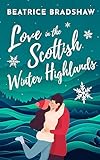
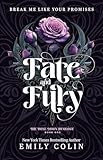

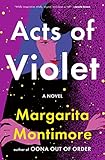


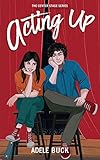

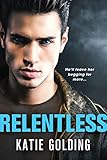



Comments